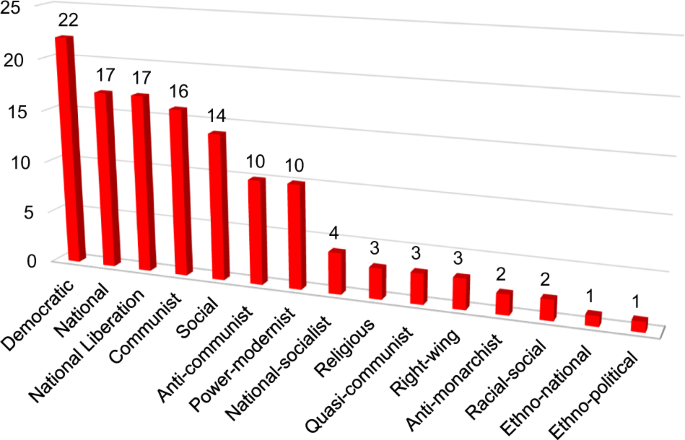What Type of Revolutionist Are You?

Find out what type of revolutionist you are by taking this quiz and discover which category you fall into based on your beliefs and actions.
1. Which of the following best describes your vision of change?
Quick, sweeping change to transform society fundamentally.
Gradual political changes with some economic reforms.
Strategic changes within the existing power structure.
Restoring lost liberties and traditional values.
2. How do you view the role of violence in achieving revolutionary goals?
Necessary and justified if it leads to significant change.
A tool of last resort; prefer peaceful methods.
Acceptable for a rapid shift in leadership.
Detrimental, it undermines long-term stability.
3. What is your stance on mass participation in a revolution?
Crucial for legitimacy and long-lasting change.
Important but should be guided by knowledgeable leaders.
Not essential, as long as the revolution is successful.
Should be avoided, creates chaos and unpredictability.
4. When thinking about revolutionary leadership, what qualities do you prioritize?
Charismatic visionaries who can inspire the masses.
Strategists who can navigate political landscapes.
Tactical leaders who can execute a coup effectively.
Guardians of tradition who can restore order.
5. What is your ideal outcome of a revolution?
Complete overhaul of the social and economic system.
Significant political reforms and improved governance.
Reorganization of power without major systemic changes.
Reinstatement of previous values and systems.
6. How do you respond to unsuccessful revolutionary attempts?
Learn and prepare for the next opportunity.
Negotiate and adapt strategies to current conditions.
Retreat and await a better timing.
Disengage and look for non-revolutionary solutions.
7. What is the most important factor for the success of a revolution?
Widespread grassroots support.
Effective political alliances.
Decisive military actions.
Legitimacy derived from historical or cultural narratives.
8. How do you view the role of ideology in a revolution?
Central, it drives the purpose and direction.
Important for unification, but flexible strategies are key.
Secondary to the practicalities of seizing power.
Convenient for mobilization but not necessarily core.
9. What kind of change do you see your revolution bringing to future generations?
A transformed society with new values.
Enhanced political structures and freedoms.
Stability and continuity within a new regime.
Revived traditions and restored cultural norms.
10. Which historical revolution most aligns with your revolutionary ideals?
The Russian Revolution (1917) for radical social change.
The American Revolution (1776) for political independence.
The French Revolution (1789) for systemic political restructuring.
The Glorious Revolution (1688) for restoring constitutional monarchies.

